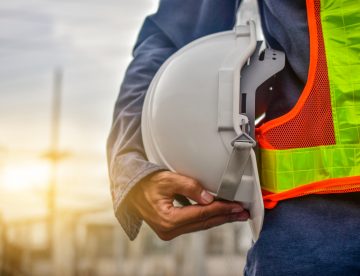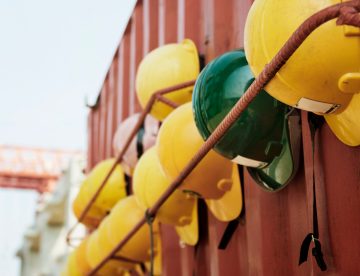As we near the end of August, you can’t help but notice all the ‘back to school’ signs and merchandise laid out at the front of the shops. This got us thinking about how, nowadays, the idea of getting back into learning mode is no longer reserved just for children and young people. The principle of ‘lifelong learning’ has long been something that many adults have embraced but, as our world continues to change at such a fast pace, this seems to be becoming more important than ever. In this week’s blog, we’re exploring the multiple professional and personal benefits that following this approach offers.

The summer holidays – a time when, like many others, people working in construction often disappear for a while (on their holidays or for family visits). But, did you know that, in the UK and for various reasons, more than half of people don’t take their full holiday entitlement? The problem, however, is that such efforts can be counter-productive as taking a break actually offers all kinds of benefits, both to the individual and the companies they work for. This week’s blog outlines the key points.

While the generally drier weather of summer makes it one of the best times for completing construction works, every year the season also brings some additional challenges, for instance around maintaining the quality of products, the reduced availability of workers and specific heat-related safety risks. Of course, this year there are additional woes related to the pandemic and Brexit but in this week’s blog, we’re focusing on four areas of concern that sites face during a typical summer and included some guidance about what you can do to avoid or overcome those challenges.

So ‘Freedom Day’ happened this Monday 19th July – the day when the remaining COVID-related legal restrictions like social distancing and mask-wearing were lifted in England. However, while there were crowds of jubilant party-goers queuing outside the nation’s nightclubs at Midnight, others (including many businesses) are taking a more cautious approach to the relaxations. So, what about construction? Read this week’s blog to find out more about what seems to be a clash between the government’s and industry leaders’ viewpoints as well as what we at Sheriff would advise.

Last week, our blog focused on head/ brain injuries and why it is so important that construction workers select, wear and maintain the right head protecting gear to stay safe. Within that article we made a reference to the issue of concussion and promised to come back to this in more detail so ‘voila’, here it is! Keep reading to gain a greater understanding of what concussion is, the signs and symptoms to look out for and what to do if you or a colleague suffers such an injury at work.

Without the right PPE, a construction site can become a very dangerous place and this is especially true when it comes to head injuries. But did you know that hard hats represent only 3% of PPE purchases in our industry and that only 6% of workers who have had a head injury at work seek medical attention? In response to these and other startling statistics, the brain injury charity, ‘Headway’, designated one week this June as Hard Hat Awareness Week, urging everyone in the industry to audit their head-protecting equipment. Read on to find out more about what you can do to safeguard yourself against a life-changing head injury.

With the deadline for EU citizens living in the UK to apply for legal status under the EU Settlement Scheme coming up on 30th June, the government has just launched a campaign urging people to get their applications in as soon as possible.
Having already lost more than a quarter of its EU-born workforce as people left the country before the end of the Brexit transition period, the recovery of the UK’s construction industry could be under serious threat if it were to lose more of this valuable workforce. Read on for more details about the campaign and find out what you should be doing right now if this issue affects you.

The UK, Welsh and Scottish governments have signed up to a legally-binding target to reduce greenhouse gas emissions to Net Zero by 2050. But to keep this target on track, the Construction Industry Training Board estimates that around 350,000 new construction jobs will need to be created by 2028, particularly outlining the need for green building specialists to reduce carbon emissions. This looks set to present both significant challenges and huge opportunities for construction companies. Read this week’s blog to find out more.

The Construction Product Association’s latest Spring Forecast, published today, paints a mixed picture for the construction industry. On the positive side, the report is predicting that construction output will rise by 12.9% this year (and another 5.2% in 2022). However, it also highlights some significant risks to the sector’s recovery, most notably around shortages and high prices affecting key construction products. Take a look at this week’s blog to find out more about why getting hold of some of these products could prove tricky over the year ahead.

